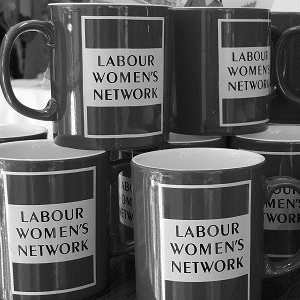Dear Labour women – why you should stick with us
This year, a new political party has been launched. It’s already recruiting, and women I like and admire are signing up. It’s called the Women’s Equality Party, and it aims to stand candidates in 2020. People keep inviting me to...
This year, a new political party has been launched. It’s already recruiting, and women I like and admire are signing up. It’s called the Women’s Equality Party, and it aims to stand candidates in 2020. People keep inviting me to join it, but I’m not going to, and here’s why:
At first glance, the WEP is an attractive prospect for a long-suffering feminist. Here’s a party campaigning for women’s rights, driven by the energy of beginning rather than the drudgery of losing, and full of women (and men) who, like me, are impatient with the slow pace of change. A party whose meetings it might be a pleasure to attend. A party which will be able to say what it thinks unfettered by the responsibility of actually having to get itself into government.
But… On the other hand, women’s rights alone are not actually what I came into politics for. Politics is always about more than a single issue, even where that issue is so fundamental as to inform all the others. Campaigning for women’s power, agency and rights matters enormously, but it matters for a reason.
Women’s ability to access hard, political power directly affects our ability to be at the table when decisions are made on the economy, foreign affairs, domestic and sexual violence and much, much more besides. Campaigning from outside the door certainly helps, but only action from within can drive change.
Labour has more women MPs than all the other parties put together because we have been able to force that door open just enough to get them through. On the present trajectory, Labour is the only major party which has even the faintest hope of achieving 50:50 gender balance in its membership of the House of Commons in 2020. Labour members (female and male) fought doggedly for the Party to make the necessary difficult, sustainable choices about women’s representation to make this possible. Women are at the table because Labour members chose to make it happen.
And whilst it is welcome news that the new shadow cabinet is more than 50% female, that achievement is not just the result of one man’s decision; it is the outcome of decades of women working to create the climate in which it could happen, women with their feet obstinately wedged on the threshold and their collective shoulders rammed close against the ancient door.
No other political party has any chance of being elected as a government with the support and inclusion of such significant numbers of women; whatever the problems and challenges, no other party anguishes so much and so consistently about equality in all its forms. If people like me withdraw now into the comfortable excitement of a new party, we risk ceding much of the ground we have won, and it is not ground we should give up lightly.
Therefore I will go on fighting for what I believe in as a member of the party I joined when I was sixteen. Over my lifetime it has changed almost beyond recognition because brave, committed, principled women inside it made change happen. Yes, we have a long way to go, but we have already come further than my teenage self could have imagined. We can’t give up now.
So thank you, sisters (and some brothers), for your kind invitations to join the Women’s Equality Party, but I’m afraid I shall have to decline, and I advise other Labour feminists to do the same. I’m going to stay put, and continue to help new generations of women from as many different backgrounds as possible shove the door open a bit further. And if there’s sometimes push-back from inside, it just makes us stronger. Bring it on.
